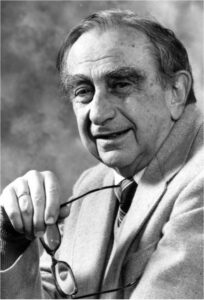In addition to the collection of over 650 “physical artifacts” that the Canadian Nuclear Heritage Museum (CNHM) houses, there is a collection of over 2500 books, documents, DVD/CDs, brochures etc. and over 1800 catalogued photographs.
One of the books recently donated, titled “Memoirs”, was written by the controversial physicist Edward Teller. Colin Orpen rescued this 600+ page book from the discard section at the W.B. Lewis Library and donated it to the CNHM.
I received the book several days after watching the recently-released movie “Oppenheimer” and was pleased to find a 32-page transcript in the appendix of the book that covered the testimony of Teller at the 1954 Personnel Security Board inquiry. This inquiry resulted in the controversial decision to cancel Oppenheimer’s security clearance. A significant part of the movie focuses on this inquiry.
The transcript was interesting enough to prompt me to read the entire book. Teller, a proud Hungarian emigree to the USA (1935), is often referred to as the “father of the hydrogen bomb”. The book details his early life in Hungary and is a very pleasant and informative read for the period from his birth in 1908 to 1960. It is sprinkled with many anecdotes and humorous footnotes such as: “A Hungarian is a person who enters a revolving door after you but exits ahead of you.”
In addition to his role in the weapons programs at Los Alamos and later at Livermore, Teller served for many years on the Reactor Safeguards Committee, a body similar at that time to the AECB (Atomic Energy Control Board) in Canada. He reports that in October 1953 “I attended a second U.S.- British conference on reactors, this one held at the Chalk River facility in Canada. We reported on the NEPA (Nuclear Energy for the Propulsion of an Aircraft) reactor accident that had occurred at the Argonne Laboratory. There was also a small accident at the Chalk River facility, although I no longer recall the details of it.” An interesting take on the serious 1952 NRX accident!
During his lifetime Teller collaborated with a huge number of pioneers of the nuclear era including Bohr, Einstein, Bethe and Fermi, as well as advising various US political figures including US Presidents from Roosevelt to Reagan as he attempted to sell his version of the case for more and better nuclear weapons.
The latter part of the book (1960-2000) covers much of his role in weapons testing, the development of the hydrogen bomb, the Cold War, the race to produce missiles to carry nuclear weapons, and finally the collapse of the U.S.S.R. Edward Teller died in 2003.
Visitors to the CNHM are encouraged to browse the huge library collection and try our comfy new armchairs. Our library has not only technical documents but many other equally interesting and informative human-interest books; most are listed on the Reference section of the website www.nuclearheritage.com


